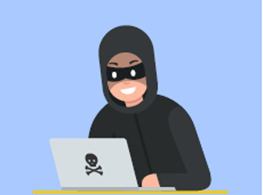March is Fraud Prevention Month
- SABVC

- Mar 4, 2024
- 2 min read
Join SABVC as we champion Fraud Prevention this March.

Most likely, every one of us has received those annoying spam calls—calls that can disrupt our day by offering promises that sound too good to be true or making threats demanding immediate action. As March is dedicated to Fraud Prevention Month, it's important for us to highlight the increasing cases of fraud, phishing, and phone call scams at Bow Valley College (BVC), especially impacting international students. Newly landed immigrants and students, with their unique position, can become a target for scammers looking to exploit their unfamiliarity with local practices. Let’s delve into the prevalent scams targeting international students, offering preventive measures while dispelling myths about legitimate calls.
Common Scams Reported at Bow Valley College Targeting our Students:
Phone Call Scams
These are very rampant, with scammers posing as our own institution (representing themselves as BVC staff), various authorities, or even government officials. They may use intimidating tactics, offering discounts and promising more benefits, claiming overdue fees, or threatening legal actions to coerce individuals into providing money or personal information over the phone.
Phishing Scams
Several of our students fall victim to these tactics. Phishing scams happen when hackers try to get your private information, like your usernames, passwords, or financial details. They might use emails or fake websites that look real to trick you into giving away your personal information.
Targeting Students for Financial Gain
Many people think international students have money, so scammers try to trick them. Scammers might pretend to offer special deals or services, especially when students need to pay for their tuition.
Students: make sure to regularly follow these steps to prevent falling victims to scams. Stay vigilant and check these measures consistently to keep yourself safe.
Always verify the caller identity
Legitimate organizations, including colleges and government agencies, do not cold-call individuals for immediate payment or personal information. If you receive such a call, ask for official documentation or contact the institution directly using verified contact information.
Stay informed.
Always know about common and recent scams and their tactics. Regularly check our BVC websites, D2L platform, and communication channels for updates on potential scams targeting the community.
Secure your digital and personal Information.
Be cautious about sharing personal information, such as bank details or passport information. Avoid responding to unsolicited requests for such information, whether through emails, phone calls, or online messages.
Know how to report suspicious activity.
We thank all the students who inform us immediately about scam activity in the College. We advise all students that if you encounter a suspicious call or email, report it to the Cyber Security Operations Center at csoc@bowvalleycollege.ca. By doing so, you contribute to the overall safety of the community and help prevent others from falling victim to scams.
Remember, if you ever encounter a suspicious call or email, report it to us — even if it is not March. Stay safe, stay informed, and let's make Fraud Prevention Month, and every other month, a collective effort towards a secure and scam-free community.












Comments